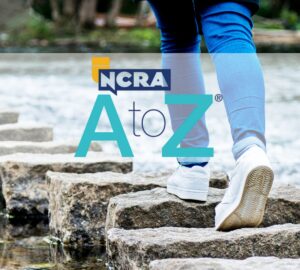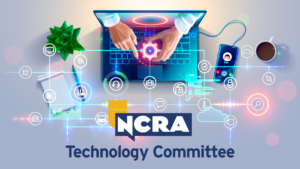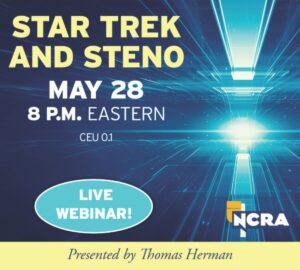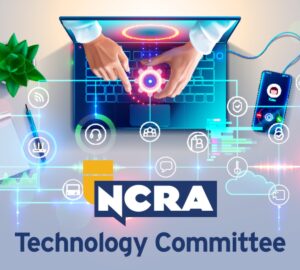 Recently, the NCRA Technology Committee has shared a few products that can help with work tasks. The products include a password management system, an education technology tool, a messaging app, and an audio solution.
Recently, the NCRA Technology Committee has shared a few products that can help with work tasks. The products include a password management system, an education technology tool, a messaging app, and an audio solution.
Nancy Bistany, RPR, shared a blog post by Dashlane on the worldwide password problem: internet users’ tendency toward “using the same, easy-to-remember password on all of their accounts over the security of using strong, unique passwords on all of their accounts.” Dashlane is a password manager that can also manage other security-sensitive information, like IDs and credit card numbers. “I use Dashlane for my Level 1 Password user,” says Bistany. “Their reminders are great.”
Bistany also shared an article from Forbes reviewing Learning Tools for OneNote. Microsoft OneNote is a now well-known note-keeping program, and Learning Tools is an ancillary product. According to the article, “Learning Tools for OneNote was originally created for dyslexics … [that leverages] a variety of already existing Microsoft technologies like Bing’s speech recognition, simultaneous audio text playback, and natural language processing … to make reading and writing more accessible to all students.” One of its features is fluent fonts, which allows “readers to adjust both the letter spacing and the number of words on the line.”
Teresa Russ, CRI, shared a link on the messaging app Slack. According to the company, it’s “oriented toward small-team collaboration” and has both a free and premium version. Chase Frazier, RMR, CRR, CRC, explained, “I use Slack to talk to a captioning team that we do a lot of events together with. All or most of the tech companies use Slack to communicate. It has awesome searching capabilities, and you can tag someone in the conversation to bring it to their attention.” Frazier added that he has his own name set as a tag so he gets an alert when the conversation involves him.
Finally, Robin Nodland, FAPR, RDR, CRR, shared a review of Trint, an audio and transcription app. Nodland pointed out a quote from the article that explains that Trint makes “it easy to compare the audio clips to the transcript as you’re verifying and editing it.”







